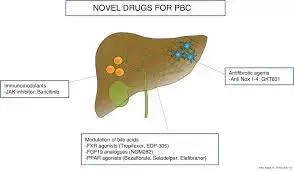- Home
- Medical news & Guidelines
- Anesthesiology
- Cardiology and CTVS
- Critical Care
- Dentistry
- Dermatology
- Diabetes and Endocrinology
- ENT
- Gastroenterology
- Medicine
- Nephrology
- Neurology
- Obstretics-Gynaecology
- Oncology
- Ophthalmology
- Orthopaedics
- Pediatrics-Neonatology
- Psychiatry
- Pulmonology
- Radiology
- Surgery
- Urology
- Laboratory Medicine
- Diet
- Nursing
- Paramedical
- Physiotherapy
- Health news
- Fact Check
- Bone Health Fact Check
- Brain Health Fact Check
- Cancer Related Fact Check
- Child Care Fact Check
- Dental and oral health fact check
- Diabetes and metabolic health fact check
- Diet and Nutrition Fact Check
- Eye and ENT Care Fact Check
- Fitness fact check
- Gut health fact check
- Heart health fact check
- Kidney health fact check
- Medical education fact check
- Men's health fact check
- Respiratory fact check
- Skin and hair care fact check
- Vaccine and Immunization fact check
- Women's health fact check
- AYUSH
- State News
- Andaman and Nicobar Islands
- Andhra Pradesh
- Arunachal Pradesh
- Assam
- Bihar
- Chandigarh
- Chattisgarh
- Dadra and Nagar Haveli
- Daman and Diu
- Delhi
- Goa
- Gujarat
- Haryana
- Himachal Pradesh
- Jammu & Kashmir
- Jharkhand
- Karnataka
- Kerala
- Ladakh
- Lakshadweep
- Madhya Pradesh
- Maharashtra
- Manipur
- Meghalaya
- Mizoram
- Nagaland
- Odisha
- Puducherry
- Punjab
- Rajasthan
- Sikkim
- Tamil Nadu
- Telangana
- Tripura
- Uttar Pradesh
- Uttrakhand
- West Bengal
- Medical Education
- Industry
Seladelpar significantly improves liver biochemistry and pruritus in patients with primary biliary cholangitis

Seladelpar significantly improves liver biochemistry and pruritus in patients with primary biliary cholangitis suggests a new study published in the Hepatology
ENHANCE was a phase 3 study that evaluated efficacy and safety of seladelpar, a selective peroxisome proliferator-activated receptor-δ (PPAR) agonist, versus placebo in patients with primary biliary cholangitis with inadequate response or intolerance to ursodeoxycholic acid (UDCA).
Approach and Results:
Patients were randomized 1:1:1 to oral seladelpar 5 mg (n=89), 10 mg (n=89), placebo (n=87) daily (with UDCA, as appropriate). Primary end point was a composite biochemical response [alkaline phosphatase (ALP) < 1.67×upper limit of normal (ULN), ≥15% ALP decrease from baseline, and total bilirubin ≤ ULN] at month 12. Key secondary end points were ALP normalization at month 12 and change in pruritus numerical rating scale (NRS) at month 6 in patients with baseline score ≥4. Aminotransferases were assessed. ENHANCE was terminated early following an erroneous safety signal in a concurrent, NASH trial. While blinded, primary and secondary efficacy end points were amended to month 3. Significantly more patients receiving seladelpar met the primary end point (seladelpar 5 mg: 57.1%, 10 mg: 78.2%) versus placebo (12.5%) (p < 0.0001). ALP normalization occurred in 5.4% (p=0.08) and 27.3% (p < 0.0001) of patients receiving 5 and 10 mg seladelpar, respectively, versus 0% receiving placebo. Seladelpar 10 mg significantly reduced mean pruritus NRS versus placebo [10 mg: −3.14 (p=0.02); placebo: −1.55]. Alanine aminotransferase decreased significantly with seladelpar versus placebo [5 mg: 23.4% (p=0.0008); 10 mg: 16.7% (p=0.03); placebo: 4%]. There were no serious treatment-related adverse events.
Patients with primary biliary cholangitis (PBC) with inadequate response or intolerance to UDCA who were treated with seladelpar 10 mg had significant improvements in liver biochemistry and pruritus. Seladelpar appeared safe and well tolerated
Reference:
Hirschfield, Gideon M.1; Shiffman, Mitchell L.2,3; Gulamhusein, Aliya4; Kowdley, Kris V.5; Vierling, John M.6; Levy, Cynthia7; Kremer, Andreas E.8; Zigmond, Ehud9; Andreone, Pietro10,11; Gordon, Stuart C.12; Bowlus, Christopher L.13; Lawitz, Eric J.14; Aspinall, Richard J.15; Pratt, Daniel S.16; Raikhelson, Karina17,18; Gonzalez-Huezo, Maria S.19; Heneghan, Michael A.20; Jeong, Sook-Hyang21; Ladrón de Guevara, Alma L.22; Mayo, Marlyn J.23; Dalekos, George N.24; Drenth, Joost P.H.25; Janczewska, Ewa26,27; Leggett, Barbara A.28; Nevens, Frederik29,30; Vargas, Victor31,32; Zuckerman, Eli33; Corpechot, Christophe34; Fassio, Eduardo35; Hinrichsen, Holger36; Invernizzi, Pietro37,38; Trivedi, Palak J.39,40,41,42; Forman, Lisa43; Jones, David E.J.44; Ryder, Stephen D.45; Swain, Mark G.46; Steinberg, Alexandra47; Boudes, Pol F.47; Choi, Yun-Jung47; McWherter, Charles A.47; ENHANCE Study Group*. Seladelpar efficacy and safety at 3 months in patients with primary biliary cholangitis: ENHANCE, a phase 3, randomized, placebo-controlled study. Hepatology 78(2):p 397-415, August 2023. | DOI: 10.1097/HEP.0000000000000395
Keywords:
Seladelpar, significantly, improves, liver, biochemistry, pruritus, patients, primary, and biliary cholangitis, Hirschfield, Gideon M; Shiffman, Mitchell L.; Gulamhusein, Aliya; Kowdley, Kris V.5; Vierling, John Levy, Cynthia; Kremer, Andreas E; Zigmond, Ehud9; Andreone, Pietro; Gordon, Stuart C, Hepatology
Dr. Shravani Dali has completed her BDS from Pravara institute of medical sciences, loni. Following which she extensively worked in the healthcare sector for 2+ years. She has been actively involved in writing blogs in field of health and wellness. Currently she is pursuing her Masters of public health-health administration from Tata institute of social sciences. She can be contacted at editorial@medicaldialogues.in.
Dr Kamal Kant Kohli-MBBS, DTCD- a chest specialist with more than 30 years of practice and a flair for writing clinical articles, Dr Kamal Kant Kohli joined Medical Dialogues as a Chief Editor of Medical News. Besides writing articles, as an editor, he proofreads and verifies all the medical content published on Medical Dialogues including those coming from journals, studies,medical conferences,guidelines etc. Email: drkohli@medicaldialogues.in. Contact no. 011-43720751


